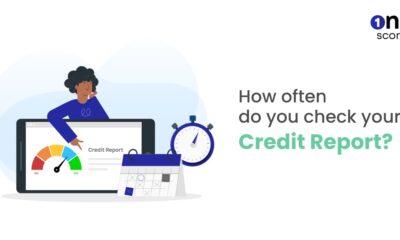

Business
Private Podcasting in Business: What are the Advantages?
The benefits of podcasts for businesses are evident in the number of new private podcasts we see each year. More companies are understanding how podcasting can enhance their internal communications and reach more targeted audiences interested.
But that would involve signing up to a hosting platform that offers custom private podcast solutions. Before that, you must know why and when to start a podcast. This article discusses nine essential benefits of private podcasting in business.
How to know if your business needs a private podcast
It is possible to argue that some establishments might not require a business podcast. However, having an internal company podcast will often be an advantage. Some of the reasons to start a private podcast are:
- Upscaling: small or medium-sized establishments could start podcasting to promote their brand and build more important connections within their niche.
- Improving team communications: firms that feel their mode of communicating or disseminating information is less engaging can try private podcasts. They offer a mix of convenience and effective sharing of information.
- Targeted campaigns: run cost-effective marketing ads primarily directed to an interested audience or qualified prospect.
9 Advantages of private podcasting in business
Discover our top nine reasons to start a private podcast for your business. It doesn’t matter whether it is a growing or already established company.
- Increased brand exposure
Launching a business podcast allows you to share your ideas, products, and services with a defined audience. It is like marking territory on the vast social media space. With over 4.7 billion users, the unending possibilities of higher sales and conversions exist.
Hence, a benefit of private podcasting for business will be providing value to target personas through your recorded content. This method is particularly excellent for small businesses that want to increase their reach organically.
They enjoy improved brand awareness, specifically to qualified prospects, sponsors, or potential business partners.
- More networking and partnership opportunities
The advantages of private podcasting for businesses are interwoven since increased brand exposure gives more room for networking and partnership opportunities. It allows companies within a complementary niche to discover your brand and request a partnership.
An internal company podcast also serves as a platform to invite industry experts and build more robust networks. Growing businesses can use private podcasting to connect with more prominent brands to boost their emerging presence in a competitive marketplace.
- Establish authority in your niche
The basis of a higher return on investments (ROI) and marketing strategy is gaining the trust of prospects and converting them into returning buyers. Private podcasting helps you do just that. When choosing competitors, people buy from those they think are more credible.
Therefore, learning how to start a podcast to state opinions or helpful tips goes a long way to boost your presence. You gain more listeners and attract interested prospects by sharing valuable insights and knowledge.
- Improve audience engagement
An additional advantage of private podcasting that makes it a must-have is how it strengthens the connection with your audience. Interested buyers could read your blogs or social media posts and feel unconvinced.
However, a business podcast can influence a potential customer differently. It provides the chance to interact engagingly as though the listeners were sitting face-to-face. Emotions and intentions are better expressed when you record your thoughts on podcasts.
- Monetization opportunities
There are many monetization opportunities for organizations with a business podcast. You could earn through sponsorship deals, paid adverts for complimentary brands, or paid subscriptions for premium podcast content.
Other podcast monetization avenues involve advertising or selling an owned product or services via the show. You could sell an online course, book or organize a live podcast with entry tickets.
While having a large audience determines how much you’ll likely earn, smaller podcasts can also give it a shot using payment models like value-based sponsorships.
- Cost-effective
Another advantage of private podcasting is its cost-effectiveness compared to other means of communication with employees or target listeners. Podcasts are easy to set up, and you don’t have to break the bank to start a private podcast.
You’re good to go with a good microphone, a suitable recording room, audio recording and editing equipment. Besides, business podcasts can substitute expensive training programs.
You could break down the essential concepts into short podcast episodes that people listen to at their convenience. Businesses can also integrate private podcasts with existing learning management systems.
- For internal communications
Private podcasting could function as the solution to struggles with effective internal team communication metrics. Instead of sending emails or newsletters that might get ignored, a podcast works better. They are more engaging, and employees can listen without having to suspend pending tasks.
In addition, an internal company podcast offers confidentiality since it is sent to only selected listeners or teams. Do you want to update only the sales and marketing departments? A private podcast can do just that.
- Communicate with your remote workforce
Remote working has significantly increased in recent years, especially in the post-pandemic era. Remote work is excellent and can offer higher chances of productivity regardless of physical or geographical barriers.
However, the likelihood of isolating your remote team exists when considering factors like different time zones, which can hamper real-time communications. But an advantage of private podcasting is how an internal company podcast can be accessed anytime and from preferred devices.
Listener analytics data can track how updates are best shared.
- Targeted advertisements
Private podcasting in business has tremendous advantages compared to popular product advertisement methods. The most obvious one is how cost-effective and easy to set up. But the real benefit of business podcasts is in organizing targeted advertising campaigns.
With podcasts, you only share your content ads with listeners with a verified interest in what you do. We call them qualified prospects since they have a higher chance of ordering your products or services.
Conclusion
Utilizing private podcasting in business has many advantages discussed in this guide. But it starts with knowing if your business needs a private podcast.
Do you want to grow your business or reach more prospects? Then, the advantages of private podcasts in this guide should guide you. Understand that you can also implement them for improved internal team communications.
Business
The Perfect Domain: What to Consider When Choosing Yours

The domain name may seem insignificant to business owners new to the online game. After all, it’s just a sequence of characters that contains your business name, right? How important could it be? The customers will figure it out in the end…
Well, you may be surprised to learn that it actually plays an integral role in your marketing strategy. For many customers, your web address is the first impression it has with your business, and therefore it must be easily-memorable and searchable.
Otherwise, they may give up on visiting your website before they’ve even really considered your awesome product offering!
With this in mind, here are some important considerations when choosing your web address:
- It should be simple
When it comes to domain name registration, nothing is more off-putting to a customer than a convoluted web address. They should be able to hear your web address from a friend or see it on a flyer before immediately searching it on their smartphone or, at the minimum, be able to remember it upon returning home.
Let’s say you run a technology repairs store called “Easy Technology Repairs”. Sure, you could include all of this in your web address and make it read something like “www.easytechnologyrepairs.com.au”. But it’s simply far too long and the customer will likely have a hard time remembering all that when it comes time to choose your service to fix their television.
Instead, you could choose something as simple as “www.easytech.com.au” and the customers will have little trouble remembering it when they jump on the train or get home to their laptops. A simple and easily-memorable web address makes it much easier for the customer to remember and this will help drive conversions.
- It should typically only contain letters
With the exception being if your actual business name actually has numbers in it. Let’s say you run a travelling tailor and dry cleaning company called “Tailors To You”. Sure, the web address “www.tailors2you.com.au” may look sleek, but it can also confuse the customer who has already seen your name spelled “Tailors To You”.
Therefore, when they go to type the web address “www.tailorstoyou.com.au” and find that it doesn’t come up with your website they will be immediately deterred and look for your product through a competitor. Therefore, you should only include numbers (and special characters for that matter) if they are actually included in your business name!
- It should pertain to your business
There is nothing wrong with including a special keyword in your web address if it actually pertains to your business. For example, you run a pool building company called “Sweet Summer” but don’t actually have the word “pools” in the business title.
One of the best things you can do here is include the keyword “pools” in your web address to make a web address like “www.sweetsummerpools.com” to ensure that both your clients and search engines like Google know what kind of content can be found on your website.
This will not only make it easier for prospects to remember your web address, but it also works well for Google, who absolutely loves knowing what kind of content can be found through a business’s web address. The search engine will have little trouble categorising your website and will therefore be likely to rank it higher in the search engine results pages!
Business
Top Tips for Enhancing Human Resources in Your Business

Human resources are the backbone of any successful business. Your employees drive growth, innovation, and productivity for your company. Investing in robust human resource practices is essential for attracting top talent, motivating your team, and developing the skills of your people over time. Now more than ever, employers need to go above and beyond to recruit, retain, and get the most out of their staff. Here are some top tips for enhancing human resources in your business.
Invest in Ongoing Training and Development
One of the best ways to get more out of your human resources is to continually develop their skills. Look for opportunities for on-the-job training, mentorship programs, and external courses or certifications that align with your business goals. Support your team by providing time and financial assistance to help them upgrade their capabilities. The more you invest in training today, the more agile and effective your workforce will be in the future. It’s especially important to train managers and team leaders on leadership, communication, performance management, and team-building skills.
Pursue a Masters in Public Administration Online
One powerful way to boost your human resources leadership is by pursuing a Masters in Public Administration (MPA) online. MPAs focus on topics like organizational behavior, labor relations, stakeholder collaboration, and evidence-based human resource management. An MPA helps you drive HR strategy, resolve complex workplace issues, and contribute at the executive level. Look for an accredited MPA program that works for your schedule. Quality masters in public administration online options offer evening/weekend courses, accelerated formats, and 100% remote learning. Invest a year or two earning this degree, and your HR expertise will grow exponentially.
Offer Competitive Compensation and Benefits
Today’s top talent knows their worth and will shop around. Make sure you offer competitive pay, bonuses, healthcare, retirement planning, and other benefits tailored to your industry and region. Go above the required minimums when you can, as generous comp and benefits are highly attractive to job seekers. You want people to join and stick around at your company. Review your compensation structure regularly and get creative with benefits like flexible work arrangements, professional development funds, and expanded leave policies.
Create a Positive Company Culture
Don’t underestimate the importance of crafting a supportive, engaging, and fun workplace culture. Things like your mission and values, leadership style, team bonding opportunities, and physical workspace design all influence the everyday employee experience. When people feel motivated and connected to their team and company, they will sustain higher job satisfaction and productivity over time.
Leverage Work Analytics
Business intelligence is key for data-driven HR strategy and decision-making. Track key metrics like employee retention, absences, productivity, satisfaction scores, promotion rates, and other KPIs. Identify trends and correlations that give you insights, such as which managers have the happiest teams or what factors drive turnover in your company. Workforce analytics enables you to pinpoint bright spots and pain points and then address them.
Getting the most from your human capital requires forethought and investment. Use these tips to enhance HR capabilities. By taking a strategic approach and dedicating resources to your workforce, your organization will be well-positioned for future growth and success.
Business
Egerp Panipat: Tailored Software Solutions for Your Business Needs

Egerp Panipat is a beacon of modern innovation in the busy city of Panipat (India), amidst its historic significance. This esteemed company has created a niche in the technology world by providing tailored solutions that meet the needs of business.
Egerp Panipat, founded on the principles customization and innovation stands as a testimony to the power of custom software development for enhancing business efficiency and driving growth.
Understanding Egerp Panipat
Egerp Panipat doesn’t operate like your typical software company. It is a dynamic company that thrives in understanding the complexities of different businesses and creating solutions that perfectly align with their objectives. Its operations are driven by a commitment towards delivering excellence via innovation.
Tailored Solutions
Egerp Panipat’s focus on tailor-made solutions sets it apart from its competition. Egerp Panipat offers a customized approach to ERP software, unlike other packages that are available off the shelf. Every business has its own unique challenges and needs. It specializes in developing and designing solutions tailored to meet these needs.
Seamless Integration
Integration with existing processes is one of the biggest challenges that businesses face when they implement new software solutions. Egerp Panipat takes on this challenge by ensuring that its custom solutions are seamlessly integrated with the clients’ existing workflows. Egerp’s team ensures that any software application or ERP system is seamlessly integrated with the client’s current workflow.
Comprehensive Services
Egerp is known for its ERP expertise, but its services go far beyond this. The company offers a wide range of services that cater to different aspects of digital marketing and technology. Egerp Panipat offers a wide range of digital services including graphic design, SEO and mobile app development.
Egerp Panipat: The Egerp Advantage
Egerp panipat is a leader in innovation and reliability on a market that’s flooded with generic solutions. We will explore the benefits that companies can get by selecting Egerp as their technology partner.
Customization Excellence
Egerp Panipat is a company that lives by the principle of customization. The company takes pride in its ability to customize solutions that are perfectly aligned with client objectives and workflows. Egerp Panipat’s solutions are intuitive and user-friendly because it understands the uniqueness of each business.
Enhance Efficiency
Egerp’s custom software solutions can help businesses streamline operations and improve efficiency. Egerp’s Panipat solutions can be used to improve efficiency across the board, whether it is automating repetitive tasks and optimizing workflows. Businesses can concentrate their resources on growth and strategic initiatives when they have streamlined processes.
Scalability and flexibility
Scalability and flexibility have become essential in today’s fast paced business environment. Egerp understands the need for scalability and flexibility, so it ensures its solutions can grow with the business. Egerp’s Panipat solutions are scalable and can be adapted to the needs of any size business.
Comprehensive Support
Egerp Panipat believes that comprehensive support is essential throughout the lifecycle of a solution. Egerp’s team is dedicated to helping you get the most out of your technology investment. Businesses can be assured of receiving help by calling dedicated support channels.

Diversified offerings: Beyond ERP
Egerp Panipat offers a wide range of services. Take a look at Egerp Panipat’s diverse services:
Mobile App Development
Businesses need to be mobile-centric in today’s world. Egerp Panipat provides end-to-end services for mobile app development, enabling businesses to conceptualize, design and deploy customized mobile applications that meet their requirements. Egerp has the experience to make your app idea a reality, whether it is for iOS, Android or cross-platform.
Graphic Design
Visual appeal is crucial in the digital age to capture the attention of your target audience. Egerp Panipat’s talented team of graphic designers are experts at creating visuals that reflect your brand’s identity. Egerp panipat creates captivating designs for logos, branding materials, website graphics and marketing collaterals.
SEO Services
Standing out in an online world that is becoming increasingly crowded can be difficult. Egerp Panipat’s SEO services help companies improve their online presence and increase organic traffic. Egerp panipat’s data-driven strategy and proven methods help businesses reach their target audience and climb search engine rankings.
FAQs:
1. What sets Egerp Panipat apart from other software firms?
- Egerp Panipat is a specialist in tailor-made solutions, which are tailored to the needs of every business. Egerp’s Panipat solutions integrate seamlessly with existing processes, and are tailored to address specific challenges.
2. Egerp Panipat is a provider of services to a variety of industries.
- Egerp panipat serves a variety of industries including manufacturing, retailing, healthcare, education and others. Customized solutions are available to meet the needs of companies in various industries.
3. Can Egerp’s Panipat solutions scale up as our business grows?
- Egerp’s Panipat solutions are flexible and scalable, which allows businesses to adapt and grow with ease. Egerp’s Panipat solutions are scalable and flexible, allowing businesses to grow over time.
4. What type of support can Egerp panipat offer?
- Egerp provides support for its solutions throughout their entire lifecycle. The company’s support team will ensure that your technology investment receives the best possible care, from initial consultation to implementation and maintenance.
5. Egerp Panipat offers services other than ERP solutions.
- Egerp Panipat also offers other services, such as graphic design and SEO. Egerp Panipat can help you with a customized mobile app, eye-catching graphic design, or increased online visibility.
6. How does Egerp panipat protect data privacy and security?
- Egerp Panipat is committed to protecting the privacy and security of its clients’ data. We use industry standard security measures. Data protection and best practices are followed by the company to guarantee confidentiality and integrity.
7. Can Egerp Panipat solutions be integrated with existing software?
- Egerp Panipat solutions can be seamlessly integrated with existing systems and software. Egerp Panipat’s solutions can be customized to work seamlessly with legacy software or modern platforms.
8. What is the pricing structure of Egerp panipat?
- Egerp Panipat offers flexible price models that are tailored to the budget and needs of each client. The pricing may differ depending on the complexity of the solution and the ongoing support needs. The company offers transparent pricing and works closely to ensure cost effectiveness.
9. Does Egerp’s Panipat software have a simple and intuitive interface?
- Egerp Panipat does prioritize usability and the user experience when designing its software solutions. A team of designers and developers ensures that solutions are intuitive and easy to use, minimizing the learning curve.
10. How do I start using Egerp Panipat?
- Egerp Panipat makes it easy to get started. Contact the company via their website or the contact details provided. A member of their staff will be happy discuss your needs, offer a consultation and guide you through the following steps.
To conclude:
Egerp panipat is a shining example of innovation and reliability when it comes to technology solutions. Egerp panipat’s emphasis on customization and seamless integration along with its comprehensive support is a great way to meet the needs of companies across all industries. Read:How to Choose an IPTV for Yourself?
Egerp is your partner in all things digital, whether it’s ERP, mobile app development or graphic design. Egerp panipat is your partner for digital transformation.

 Business3 years ago
Business3 years agoFind out how useful a loan is without a credit check

 Business2 years ago
Business2 years agoBest Workplace Upgrade

 Digital Marketing3 years ago
Digital Marketing3 years agoIs YouTube Marketing Capable of Taking Your Business to the Next Level?

 Food3 years ago
Food3 years ago5 Best and Worst Foods for Boosting Metabolism

 Business3 years ago
Business3 years agoContent Creation Tips Every Digital Manager Needs to Know

 Travel3 years ago
Travel3 years agoA Quick Traveler’s Guide to Malaga – You Can’t-Miss

 Lifestyle3 years ago
Lifestyle3 years agoHow to Choose the Best Air Fryer for Me

 Fashion3 years ago
Fashion3 years ago8 Top Leather Jacket Picks To Try Out This Year















